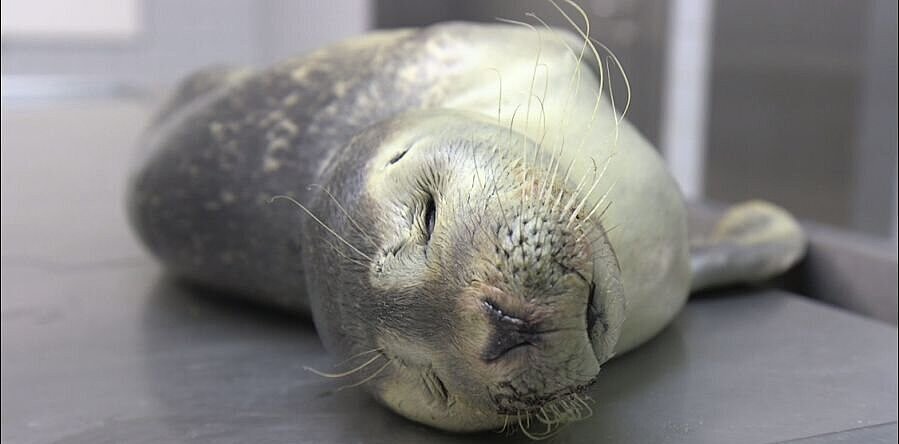
| Project data | |
|---|---|
| Project leader: | Prof. Prof. h. c. Dr. Ursula Siebert |
| Chief scientist: | Dr. Stephanie Groß |
| Scientific staff: | Dr. Andreas Ruser |
| Projekt term: | December 2021 until November 2024 |
| Sponsorship: | Bundesministerium für Bildung und Forschung (BMBF)/PTJ Jülich |
| Project partners: |
Alfred-Wegener-Institut Helmholtz-Zentrum für Polar- und Meeresforschung, Bremerhaven inklusive Helmholtz-Institut für Funktionelle Marine Biodiversität an der Universität Oldenburg Christian-Albrechts-Universität, Kiel Deutsches Institut für Entwicklungspolitik, Bonn GEOMAR Helmholtz-Zentrum für Ozeanforschung Kiel Humboldt-Universität zu Berlin Leibniz-Institut für Ostseeforschung Warnemünde Max-Planck-Institut für Marine Mikrobiologie, Bremen Senckenberg am Meer, Wilhelmshaven Johann Heinrich von Thünen-Institut, Bremerhaven Umweltforschungszentrum Leipzig Universität Greifswald Universität Oldenburg Universität Rostock Leibniz-Zentrum f. Mar. Tropenforschung Bremen |
Title overall project:
Concepts for Reducing the Effects of Anthropogenic pressures and uses on marine Ecosystems and on Biodiversity
Project description
The North and Baltic Seas are currently undergoing increasing change due to human activities and climate change. The aim of the subproject of the University of Veterinary Medicine Hannover Foundation, conducted by the Institute of Terrestrial and Aquatic Wildlife Research, is to identify and establish pathogens in native marine mammals and in the environment as indicators of increasing anthropogenic pressures on marine mammals. Habitat changes and effects of anthropogenic activities on marine mammals could be detected at an early stage and serve the development of management recommendations and political and societal decision-making processes with regard to the protection and sustainable use of coastal and marine areas. For this purpose, existing data from previous projects on marine mammals from the planned observatories' areas will be compiled. In addition, new data will be obtained during the project from live and dead grey seals (Halichoerus grypus), harbor seals (Phoca vitulina), harbor porpoises (Phocoena phocoena) and taken from the environment at the selected observatories/sampling stations (real laboratories), which include Borkum Riffgrund, Sylt Outer Reef and Eckernförde Bay. The swab, tissue and water samples are analyzed for the bacteria and selected viruses present using various modern methods. The loads are recorded both qualitatively and quantitatively. The data obtained will be used to assess whether there have been changes in the loads at the three sites over the past 25 years. In addition, the data will be analyzed with respect to pathogens with indicator suitability, and appropriate pathogens will be integrated into the long-term monitoring strategy of the reallaboratories. This integrated research on marine mammals, together with the results of the other project partners, forms an overall picture. This research will make an important contribution to the sustainable use and protection of the coasts and seas, as well as their inhabitants, and thus to the conservation of biodiversity.
Contact person
Stiftung Tierärztliche Hochschule Hannover
Institute for Terrestrial and Aquatic Wildlife Research
Werftstr. 6
25761 Büsum
Dr. Stephanie Groß
Phone: +49 (0)511-8568163
e-mail schreiben


